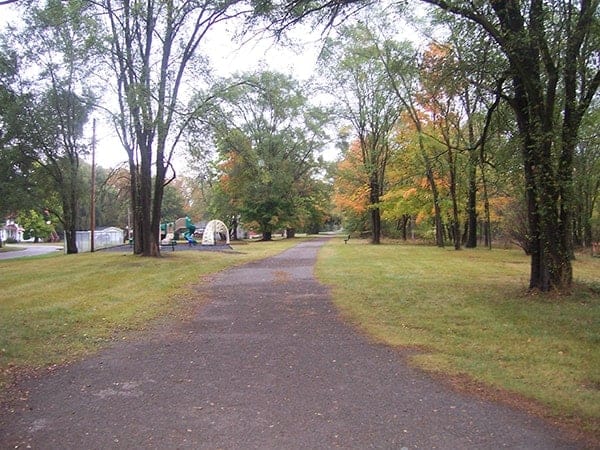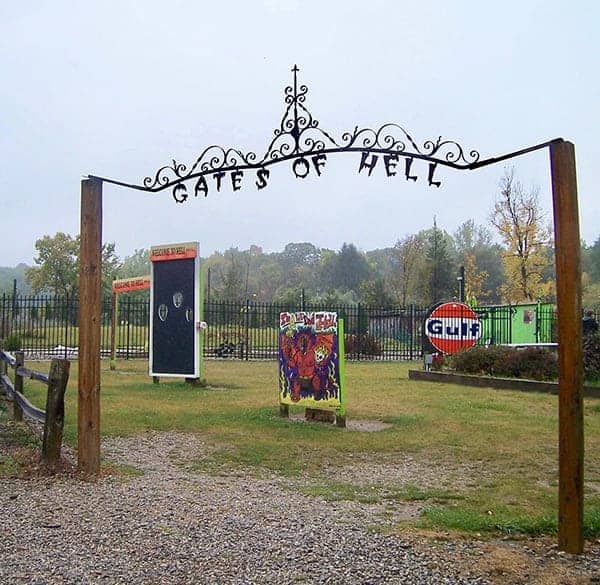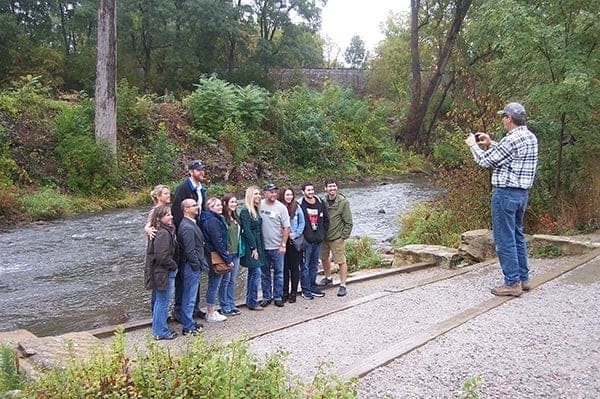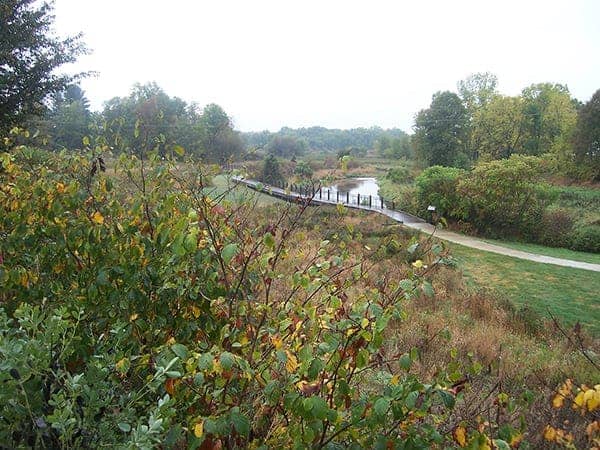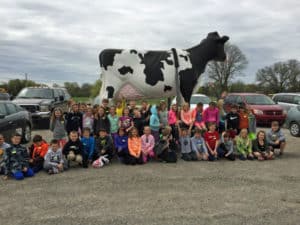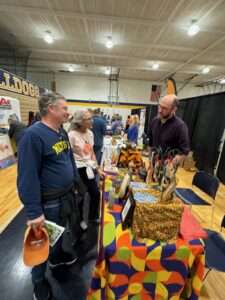By Lisa Carolin
The Big 400 refers to the region that encompasses a 20 by 20 square mile area that surrounds Chelsea. Close to 50 people participated in this year’s Big 400 bus tour, which took place on Oct. 6, a magnificent fall day with light precipitation.
This year’s tour covered the area northwest, northeast, and east of Chelsea and began at the Eddy Discovery Center in the Waterloo Recreation Area. The first stop was at Robin Hills Farm in Sylvan Township. Robin Hills enthusiastic Events Coordinator Jeremy Hodges directed the buses around the sprawling farm, which has numerous construction projects underway and many in the planning stages.
Construction on Robin Hills first began in 2015, and the popularity of the farm along with the investment by its owner Roy Xu has led to a burgeoning site that includes farmland, gardens, ponds, wetlands and event venues, all in a sustainable design.
We learned about many of the trails for non-motorized vehicles as the tour buses made their way to Stockbridge in Ingham County. Residents Frances and Campbell Laird gave us a history of Stockbridge while we stood at a lovely hub for trails. The town was founded in the mid-19th Century.
The Lairds said that Michigan is third in the U.S. behind Oregon and Colorado when it comes to the amount of money people spend on outdoor activities.
We drove through Gregory to the Bruin Lake Campgrounds on Bruin Lake, which connects to a chain of six more lakes. We were told that the campgrounds are the scene of a great big Halloween party every year.
Next stop Hell, where there are no shortage of puns about the name of the town. John Colone, who has been called the unofficial mayor of Hell, provided the narrative as well as ice cream at Screams.
He said the most asked question he gets is, “How the hell we got our name?” Turns out a man named George Reeves, who lived in the area back in 1841, was asked the town’s name and responded, “Call it Hell for all I care.” Thanks to the name and a variety of souvenirs, entertainment, and a wedding chapel, the town attracts hundreds of thousands of visitors from all over the world.
We continued our drive through the very scenic and bumpy Pinckney State Recreation Area, which encompasses 11,000 acres of woodland, hiking trails, lakes, and campgrounds, and we had the chance to see Silver Lake, known for swimming, fishing and boating.
Our final stop on the tour was Dexter, where we were greeted by Paul Cousins, who has lived in Dexter for more than 50 years and has served in local government for most of that time.
He led us along Mill Creek, the largest tributary of the Huron River. The dam was taken out in 2008, and the area has become a popular spot for walking, biking, and catch and release fishing. The creek is 20 to 30 feet wide and three to four feet deep.
Cousins gave us a history of Dexter, which began in 1824 when Samuel Dexter moved there to establish mills. Samuel Dexter was a judge and an abolitionist, who believed in the intercontinental railroad and built the Greek revival style, 5,000 square foot Gordon Hall.
We enjoyed a lunch buffet at the Riverview Cafe, and then headed over to the Dexter Cider Mill to learn how cider is made, to patronize the store, and to visit the Sandhill Crane Vineyards tasting room. The Dexter Cider Mill is the oldest continuously running cider mill in Michigan.
Full up on wine, cider, donuts, and numerous facts, we made our way back to the Eddy Discovery Center. The tour was a welcome reminder of just how close Chelsea is located to many beautiful, natural locations that offer a multitude of recreational activities.




